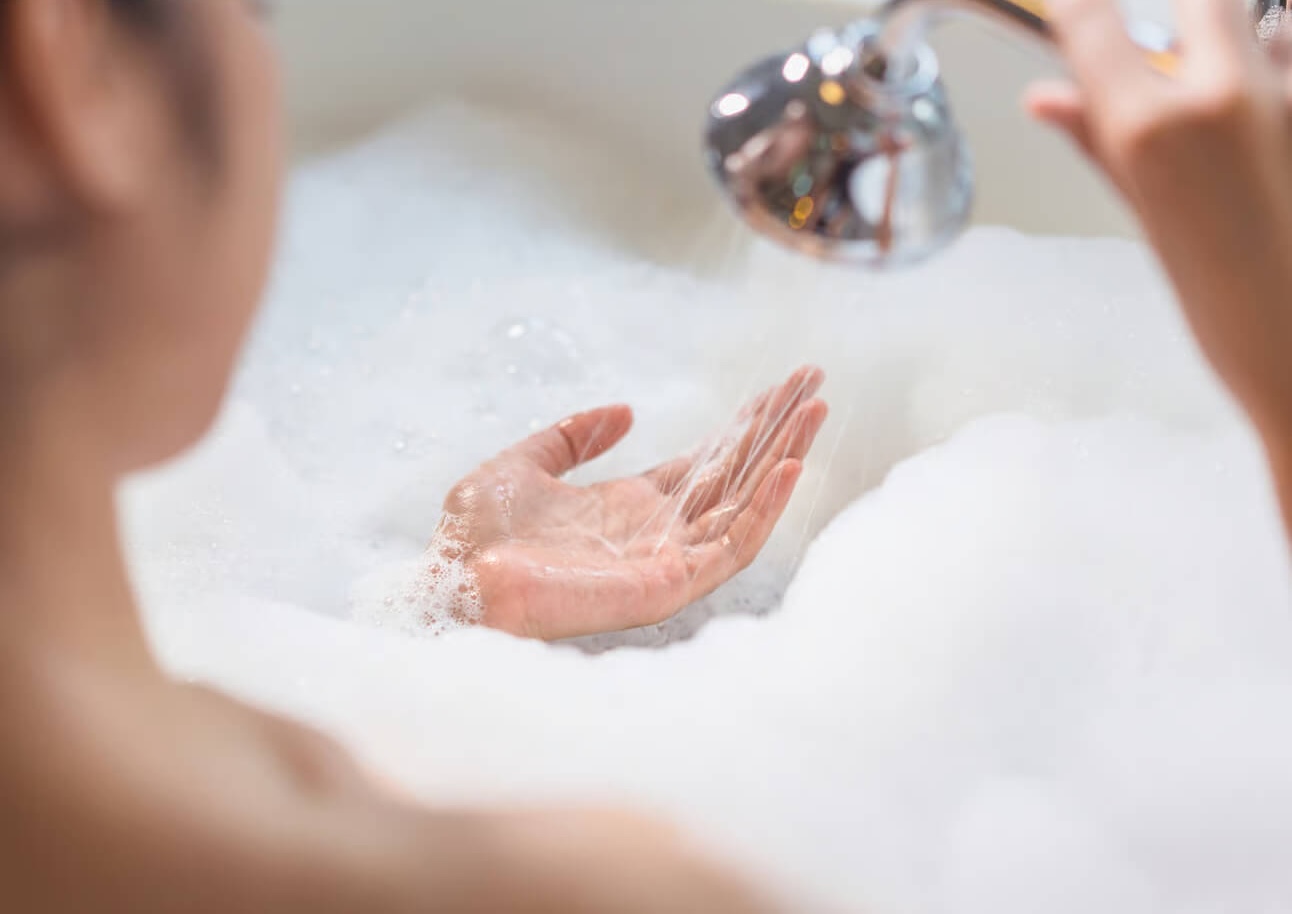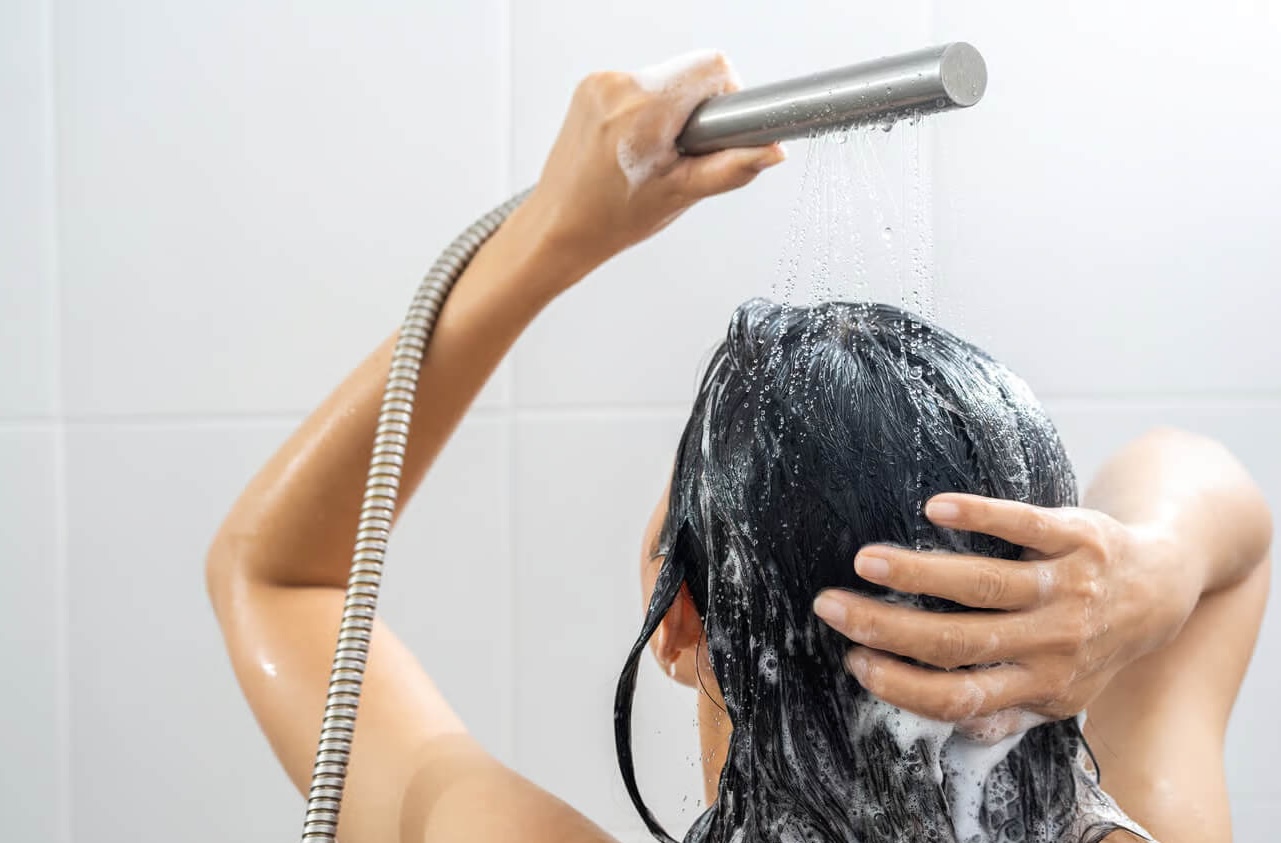Why Filtered Bath Water Is Becoming a Thing (Yes, Really)
You filter your drinking water—but have you ever thought about what’s in the water you bathe in?

Most of us focus on drinking clean water. But what about bathing?
The average shower lasts 8.2 minutes. Over a year, that’s 50 hours where your skin is absorbing whatever chemicals are in your water. And if you prefer baths? Those typically last 20-30 minutes, meaning even more time marinating in mystery metals.
Plus, studies show hot showers create tiny water droplets that deposit chlorine byproducts, heavy metals, and other contaminants directly into your lungs. That’s enough to make an environmental toxin-obsessed person like me pause.
The question is: What can we do about it?
Hard Water Impacts Almost Everyone
The bad news is that this is a question that impacts almost everyone:
- 85% of American homes have hard water. The hardest water cities are Las Vegas, San Antonio, and Kansas City, with water hardness levels exceeding 250 mg/L.
- 45% of US drinking water contains detectable levels of PFAS chemicals (“forever chemicals” that don’t break down naturally).
The good news is that a water filter can help. A quality one removes a significant amount of chlorine, heavy metals, and other nasties lurking in your water.
What To Look For In A Water Filter
What exactly is in a “quality” shower filter? Scan for:
- KDF-55: This copper-zinc blend removes up to 99.9% of chlorine, helping prevent dryness, soften hair, and reduce flare-ups from eczema or psoriasis.
- Activated Carbon: This can help remove trace heavy metals like lead and mercury, plus volatile compounds (VOCs) that become airborne in hot water steam.
- Calcium Sulfite: Another chlorine-removal option that works well in hot water and doesn't reduce water pressure.
Beyond Filtration: Smart Shower Habits
While you’re shopping for a filter, try these immediate changes:
- Lower the temperature: How water creates more airborne droplets than warm water.
- Shorten your showers. Try to get that 8.2-minute average down to five.
- Improve ventilation. Turn on the exhaust fan before you hop in the shower and keep it running for 30 minutes after. Better airflow equals fewer lingering contaminants.
What a Filter Can’t Do
Shower filters are not a magic bullet.
While some people swear by them (myself included!) the scientific proof is still limited. And although they’re great at removing chlorine and contaminants, they won’t fix hard water issues 100%. For that, you’ll likely need a whole-house water softener.
Plus, these filters target chemicals, not microbes like Legionella or E. coli. If you don’t change your filter regularly, it could become a bacterial breeding ground. Swap your filter every 3-8 months.
Don’t Forget The Little Ones
Those 50 hours a year spent absorbing hard water can be rough on anyone’s skin. But for children’s delicate skin? It’s even rougher.
- Science Says: Babies exposed to hard water have an 87% increased risk of developing eczema (especially if they have a family history of allergies).
In fact, children’s skin is 30% thinner than adult skin. That’s why I recommend installing a bath filter for little ones. Protecting their skin barrier during those early years can prevent a lifetime of skin struggles.


